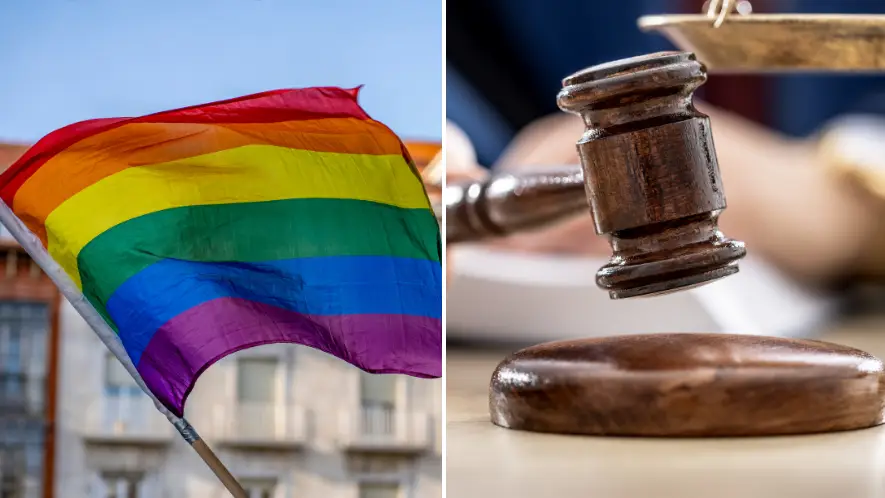
Can you imagine if your spouse cheated and you couldn't state adultery as the reason for divorce? Well, it turns out that a little-known UK law can actually cause this to happen, and it more commonly affects those in same-sex marriages.
While no one (hopefully) gets married with the intention of ever divorcing, it's sadly a fact of life with around nearly 50 percent of marriages ending in divorce.
But it turns out the perimeters surrounding legal grounds for divorce differ massively from heterosexual couples to same-sex couples.

Advert
You can get divorced in England or Wales if you’ve been married for over a year, your relationship has 'permanently broken down' and if your marriage is legally recognised in the UK (including same-sex marriage).
There are currently five grounds to divorce in the UK which include:
- unreasonable behaviour
- abandonment
- separation for two years
- separation for five years
- adultery
Interestingly though, the latter can't be used as a grounds for divorce for same sex couples.
The official Gov.uk website defines adultery as when 'your husband or wife had sex with someone else of the opposite sex, and you can no longer bear to live with them'.
Clearly, 'the opposite sex' totally excludes partners in same sex relationships.
The government then clarifies that 'it doesn’t count as adultery if they had sex with someone of the same sex'.
"This includes if you’re in a same-sex marriage," it adds.
This basically means that if a man cheated on his husband with another man, it would not count as adultery in the eyes of the law.
Equally, if a woman had a sexual affair with another woman, her wife wouldn't legally be able to say she had committed adultery.

But, if that woman had sexual relations with another man outside of her marriage to her wife, she could cite adultery as grounds for divorce as he is a member of the opposite sex.
Of course, this would also mean that if a man cheated on his wife with another man, that too wouldn't fit the legal criteria for adultery.
So, what's the reasoning behind all this?
Well, it all comes down to what the law constitutes as consummation in a marriage.
At the moment, it can be defined fairly clearly with heterosexual couples.
However, the law seemingly finds it difficult to define what this means with same-sex couples.
So, when someone in a same sex marriage cheats, the law isn't able to legally recognise it as they cannot recognise the consummation of the initial marriage.
Same sex marriage was legalised in England when The Marriage (Same Sex Couples) Act was finally passed on 17 July 2013.
The first marriages of same sex couples took place the following year on Saturday 29 March 2014.
Topics: News, UK News, Sex and Relationships, Politics